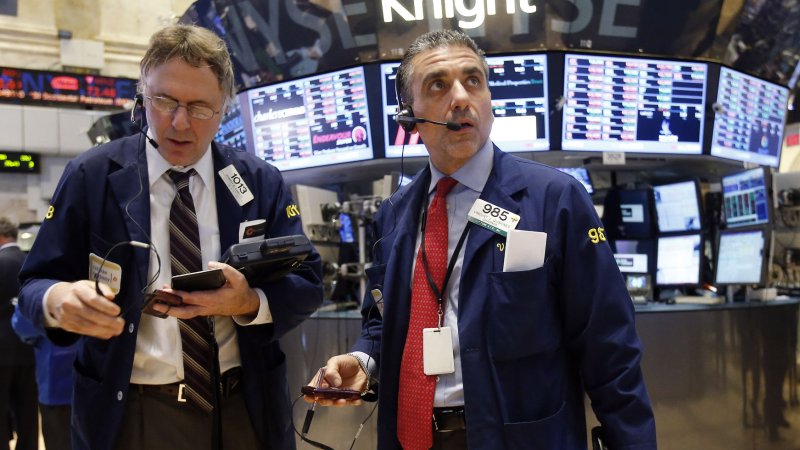Traders work the floor of the NYSE before the closing bell at the New York Stock Exchange on Wall Street In New York City on February 28, 2013. Stocks ended flat on giving up modest gains late in the session, denying the Dow a chance to inch closer to all-time highs. UPI/John Angelillo |
License Photo
NEW YORK, March 4 (UPI) -- Market analysts are saying U.S. corporations will continue to thrive despite federal spending cuts, even as the job market languishes.
The effects of the $85 billion in automatic spending cuts that became official March 1 will have "minimal" effect on corporations, Savita Subramanian, the head of U.S. equity and quantitative strategy at Bank of America Merrill Lynch told The New York Times.
Corporate earnings may go down by 1 percent, Subramanian said, adding, "The market wants more austerity."
Austerity in part means job cuts. The current reduction in spending is expected to erase 700,000 U.S. jobs. In contrast, the Dow Jones industrial average is flirting with an all-time closing high and corporate profits are strong.
"There hasn't been a period in the last 50 years where these trends have been so pronounced," said Dean Maki, chief U.S. economist at Barclays, referring to the gap between corporate earnings and disposable income.
Since 2008, corporate earnings have risen 20.1 percent at an annual rate while disposable income has gained 1.4 percent annually.
The Times reported Monday corporations that are hiring are doing so overseas.
3M Corp., for example, added 11,438 jobs since 2007, but only 608 of those jobs were in the United States, the Times said.
In recent years, business growth has been concentrated overseas and U.S. firms have learned, as they often do in an economic downturn, they can sustain output with fewer workers. They can also cut their workforce in tough times, which allows them to protect their bottom line, even if it comes at workers' expense.
"Right now, chief executive officers are saying, 'I don't really need to hire because of the productivity gains of the last few years,'" said Robert Moritz, chairman of PricewaterhouseCoopers, a major accounting firm.
"If I don't have the business, at some point you've got to adjust the workforce. You always try to find solutions, but you get to a point where it's inevitable," said Louis Chenevert, CEO of United Technologies Corp., a Dow component.










